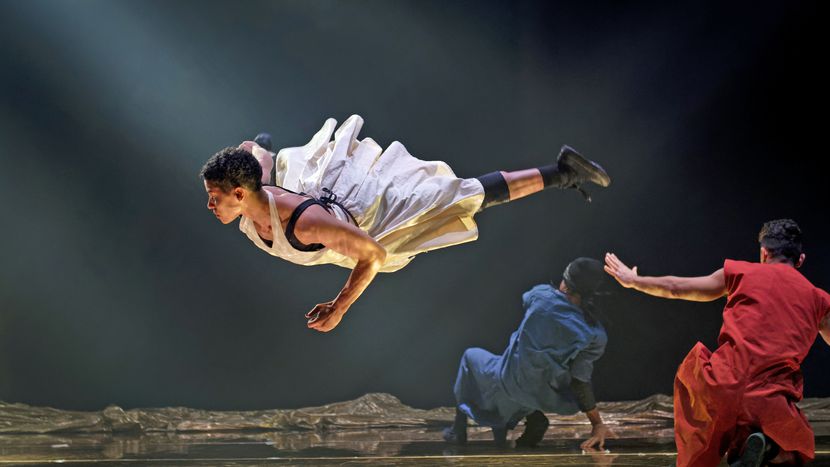Hervé Koubi worries he sounds pretentious, or maybe a little corny, when he says the mission of his dance pieces is to bring the world together. He chuckles at himself explaining the deep questions he probes in his latest work, Sol Invictus, to be performed by his French company in its third appearance in Dallas as part of the TITAS/Dance Unbound series.
Watching Compagnie Hervé Koubi’s international array of athletic, acrobatic troupe members spring and spin across the stage is an exhilarating, life-affirming experience all on its own. But the choreographer is after more than the creation of simple thrills for an audience.
“It’s very political,” he says during a Zoom call from Paris, where his company is rehearsing, “because if we can dance together, we can live together.”
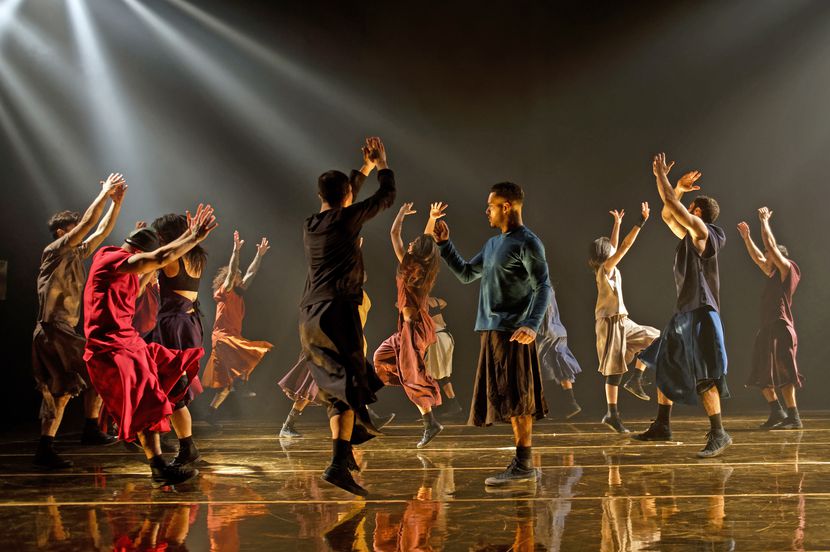
Even before the current wars in the Ukraine and the Gaza Strip, Koubi was sensitive to international politics and the issue of borders and personal identity. His ballet career well underway, Koubi discovered his Algerian roots at 25. That background had been kept from him by his parents, who sought to assimilate into French culture.
The revelation sent Koubi on a journey across the Mediterranean to his family’s native country, where he found a group of men practicing hip-hop devised by African Americans half a world away. With no dance schools in Algeria, they had learned their moves from YouTube videos.
Drawing on his ballet training, the Afro-Brazilian martial art of capoeira and hip-hop, Koubi remade his company with the Algerian autodidacts at its center. The resulting piece, What the Day Owes the Night, startled the TITAS audience, as did its follow-up, The Barbarous Nights.
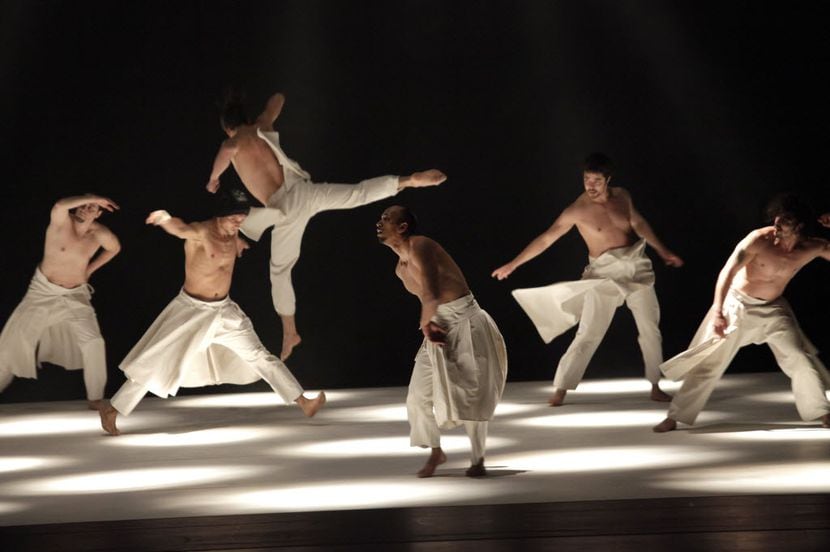
Koubi, now in his 40s, has described this movement style as “halfway between hip-hop physicality and classic elevation.”
“It was a very important moment because I met dancers who are able to forget where they come from,” he says, “and to put their skills at the service of a contemporary choreographer.”
Koubi has since built on those roots and expanded his company’s diversity. Though he won’t spell it out himself, his dancers for 2023′s Sol Invictus come from Brazil, the United States, Italy, France, Switzerland, Russia and Morocco, with Algerians still at the heart. While it remains mostly male, the company now includes women.
“In theory, they are not supposed to dance together at all,” he says. “But we have mutual roots much older than nations. The borders were drawn at one moment in history. But we don’t read that history. We don’t learn that our ancestors also come from Algeria; we are a little bit Celt, we are a little bit Roman, we are a little bit Christian, we are a little bit Jewish and we are a little bit Arabic. And this Mediterranean history is linked with all of the other history around the world. What I want to make is a kind of echo of this history, of all mutual history.”
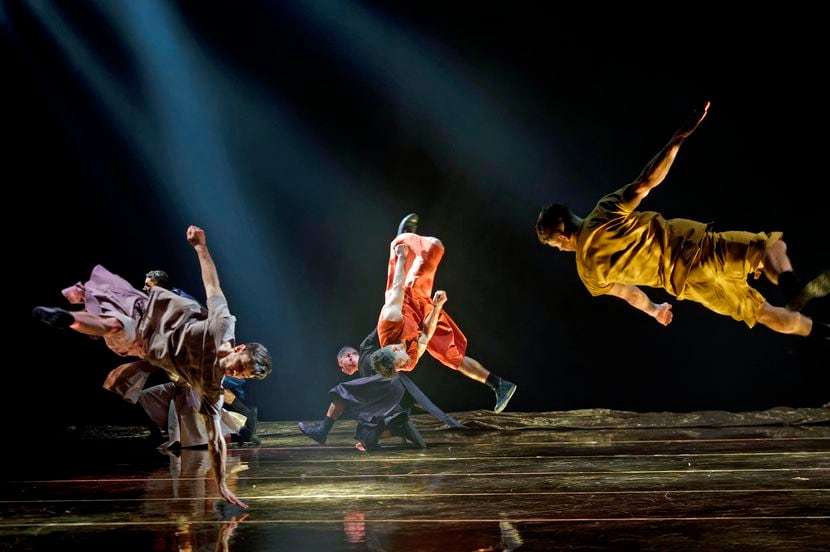
Sol Invictus translates to “invincible sun,” and Koubi evokes the title on stage with a reflective golden floor and a malleable piece of golden fabric that allows him to use less light. He sees it as a rebirth ritual drawing inspiration from the winter solstice — when daytime reaches its shortest point — and evoking the cycle of the seasons.
“The moment we are in is very dark and we need this ritual of dancing together to transform politics into poetry and show that we, like the sun, are invincible. If we dance together, I feel we are invincible. We are never as alive as … when we dance.”
Sol Invictus, like much of Koubi’s work, started with music and writing.
He says he creates a kind of script for the dancers and then gives them the freedom to come up with their own movement. He compares it to children on a playground before the limits and prejudices of adulthood have set in.
“The way I build choreography is very contemporary,” Koubi says. “There are some skills like rotation on the head or hands that come from hip-hop and some acrobatic movement, but very few things in the end. I’m interested in the quality of the connections between the movements and the use and spread of space. I don’t want to seem too proud or pretentious, but I really think when I created What the Day Owes the Night, I made something very new in the landscape.”
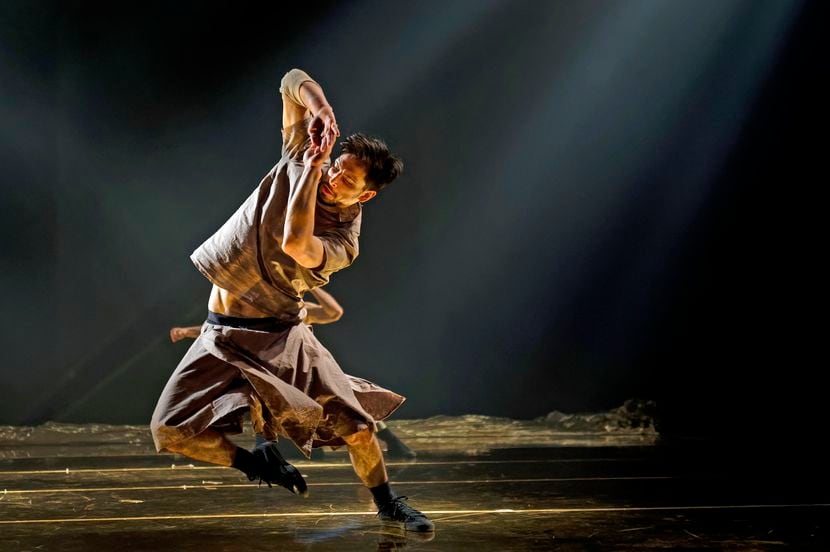
Musically, Koubi built Sol Invictus around excerpts from The Four Sections by Steve Reich, a composer he says he hadn’t previously dared approach. He contrasts the Reich with new compositions by electronic Belgian musician Maxime Bodson and Sweden’s Mikael Karlsson, along with excerpts from the second movement of Beethoven’s 7th Symphony, which he says represents hope.
Born both Algerian and French, trained as a pharmacologist as well as a dancer, Koubi sees his job as operating along the borders between different kinds of music and movement styles, between different peoples and cultures. He hopes to create reflections through this work that lead to a better world. He’s also a realist.
“I learned to dance at ballet school, but I decided to make dances that come from the street,” he says. “The actuality is you have to choose your side. We have to be against something or someone or this country or the other country. It’s tyranny for me, it’s unbearable. There are no subtleties, there are no nuances anymore. I’m afraid, but I want to resist this in my projects.”
Details
Jan. 19 at 8 p.m. at Winspear Opera House, 2403 Flora St. $12-$135. attpac.org. titas.org.
This post was originally published on this site be sure to check out more of their content.


